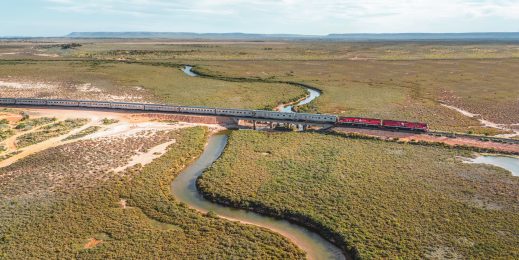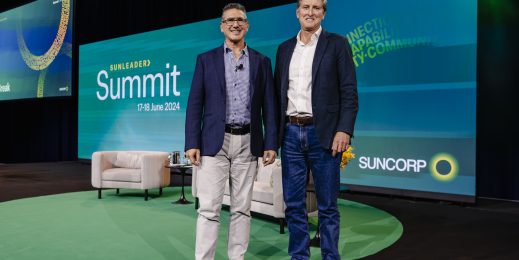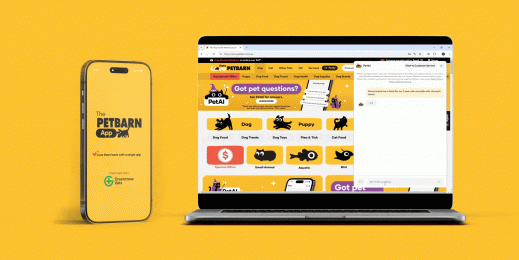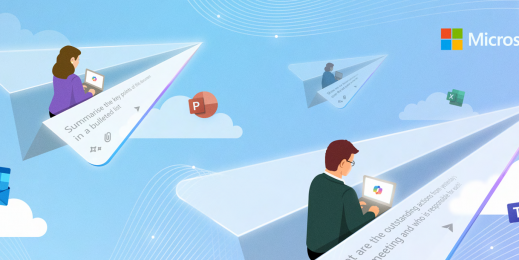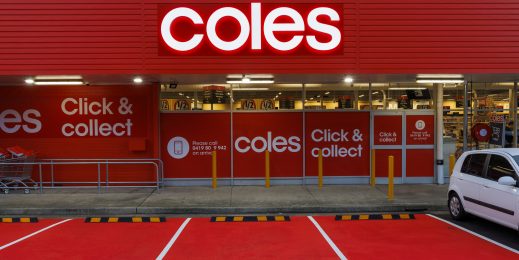
From modern slavery to sustainability: A deep dive into responsible procurement
Dave Andrews, Procurement Lead, Microsoft ANZ
Are organisations that demand lower prices from vendors responsible for human rights abuses? How can businesses control carbon emissions within their supply chains? Why are First Nations–owned and women-owned suppliers often more efficient and agile than larger vendors?
These are just some questions I wrestle with every day as Procurement Lead here at Microsoft ANZ. Read through our recent report into responsible sourcing and you’ll begin to understand just how complex the ethics of procurement really are.
The modern supply chain is a global, distributed and often murky place. Even with the strictest ethical standards in the world, many organisations find it difficult to ensure these standards are being met by every supplier. But through Microsoft’s strategic partnership with global consulting firm EY, I’ve met two women who make it look easy.
Amy Crookes leads the Environmental Social Governance (ESG) Services team at EY in the Asia Pacific. Sian Ellis is Assistant Director of Sustainable Procurement for EY in the United Kingdom. Amy and Sian recently sat down with me to share their insights on everything from supplier sustainability to modern slavery. Below is an edited transcript of our conversation, which I hope you’ll find as fascinating as I did.
 Dave: At Microsoft, we recently released a report showing that one-third of Australia’s large businesses are likely to miss their net zero targets by 2050. How much do you think supply chain or Scope 3 emissions have to answer for here? And how are you tackling them at EY?
Dave: At Microsoft, we recently released a report showing that one-third of Australia’s large businesses are likely to miss their net zero targets by 2050. How much do you think supply chain or Scope 3 emissions have to answer for here? And how are you tackling them at EY?
Sian: Like many organisations, the majority of EY’s emissions are Scope 3. So, we considered this when we made our carbon commitments in 2020. Our overarching commitment is to reach net zero by 2025. But within that, we’re going to reduce our travel emissions 35 per cent. We also aim for 75 per cent of our suppliers to have made a science-based target by 2025.
We actively track our progress against goals on a monthly basis, and we have conducted training for targeted suppliers on emissions reduction and encourage accountability.
Supplier relationship management plays an important role here. We’re building these considerations into quarterly business review meetings with our suppliers. We’re including emissions information in our request for proposal questions and in ongoing due diligence with our suppliers.
Dave: We’ve also focused on a partnership approach with our suppliers. As of FY21, we were able to get emissions data from 87 per cent of suppliers in our devices supply chain, the majority of which we could then include in our own carbon accounting.
Are there any other areas we should focus on when it comes to sustainable procurement?
Sian: It’s important to be proactive rather than reactive. A company like Microsoft is already doing a good job of that. But in Europe, the EU Directive will make supplier due diligence a need to have. It’s time for businesses to start thinking ahead.
Each company should map their ESG risks and ESG impacts – including human rights. Our risk mapping has certainly influenced the questions we ask and suppliers we focus on in our supplier due diligence approach at EY. I’d also recommend also including a climate change disruption assessment in these efforts.
Dave: And I think it’s also about choosing transparent vendors. At Microsoft, for instance, we publish all our supplier non-compliance data from within our devices manufacturing supply chain. We also provide an Eco Profile that shows the full life cycle impact of every one of our devices.
But when we talk about sustainability, I think it’s critical we don’t just talk about the environment but also issues like modern slavery and living wages. For the average company procuring goods, what are the risks of inadvertently becoming involved with human trafficking or another form of modern slavery?
Sian: Certainly, there is a risk. That’s partly due to poor visibility within supply chains. Unfortunately, the nature of audits and assessments means you might not actually detect some of these issues, even if you think you have visibility. In some industries, suppliers are used to being audited and may be conscious to hide certain things, which could be due to a sense of being policed, rather than being collaborated with.
The nature of these crimes can also make them really difficult to detect. We should always remember that modern slavery is on a spectrum. It can manifest in very extreme ways, or in smaller things; for example, an employer might withhold somebody’s original documentation or passport. There might be threatening or coercive behaviour at work that an audit wouldn’t necessarily be able to detect.
So, there are some aspects of modern slavery that might not seem to meet the definition by itself. But when considered together, they signify that something is very wrong and that an employee’s freedom to leave the employer is restricted.
Dave: We as organisations continually push the businesses we buy from to increase productivity and reduce costs, and these measurements of success are actually contributing to the problem. But we need to understand that if we continue the race to the bottom, we might be contributing to modern slavery.
I’d like to talk about the related question of fair pay. How do we maintain oversight of this when it comes to our supply chains?
Sian: EY is a Living Wage Employer in the UK. This means paying directly employed staff an independently recognised, real living wage, and extending that to subcontracted staff where there’s a greater risk of low pay.
While more organisations are focusing on this, there is still a huge gap. Partly, that’s because real Living Wage rates haven’t actually been identified yet in certain countries, regions and industries. In the UK you can contact the Living Wage Foundation for more information about becoming a Living Wage Employer in the UK. In the US, there is a relatively new organisation called Living Wage For US and with partners, the Global Living Wage Coalition has identified a real Living Wage in many locations and industries to help drive progress.
Dave: We’re also focusing on this at Microsoft. In the past year alone, audits of our devices manufacturing facilities have enabled us to identify and repay US$1.5 million in past insufficient payments to over 36,000 workers.
But of course, there’s more to this story than mitigating negative impacts – we can also take proactive steps to increase our positive impact. Buying from a more diverse range of suppliers is one of the ways we’re trying to ensure we have a positive impact on communities where we operate. I know you do the same at EY.
Do you think that, in general, businesses are becoming more aware of the need to procure from a diverse range of suppliers?
Amy: I’ll take this one, because it’s something I deal with on a daily basis. We’re definitely seeing more companies strengthen and expand their ESG programs and review their procurement processes with supplier diversity in mind.
Various factors seem to be driving this. It can be shareholder or employee expectations, or the need to diversify supply chains due to disruption. It can also come from a desire to include suppliers from particular minority groups, such as buying from Aboriginal and Torres Strait Islander–owned or women-owned businesses.
Whatever the drivers, supplier diversity is no longer a ‘nice-to-have’. Now it’s a ‘must-have’ for companies that want to operate in today’s world. At EY, a lot of our focus on supplier diversity is driven by client expectations.
Dave: Too often, I see procurement people focus on inclusion for compliance reasons. What I love about EY and Microsoft, though, is that we do this work because it’s part of our purpose.
In your role, how do you try to open up inclusive economic opportunities within the communities that you buy from?
Amy: I’m really fortunate to be in a role where my sole purpose is just to seek diverse suppliers and businesses for opportunities in our supply chain. I work closely with various advocacy organisations such as Supply Nation (of which Microsoft is also a member), looking for businesses that meet our requirements here at EY.
But the best part of my role is finding ways for EY, as a professional services firm, to provide support to these businesses. We’re developing some really brilliant programs and workshops that help our teams share their knowledge.
So, inclusion is part of our DNA. It’s embedded into our global procurement policy and our day-to-day work. We make sure that message is driven from the top – our leaders make it very clear that supplier diversity is not an additional part of what our supply chain team does, it’s what we all need to do to create that impact on our communities.
Dave: Another really important thing we’ve noticed at Microsoft, particularly during COVID-19, is that many Aboriginal and Torres Strait Islander–owned or women-owned businesses and social enterprises are generally more agile, and can adapt quickly and more efficiently than most large multinational organisations.
Before we wind up, I’d like to zoom in on our own relationship. Obviously, EY is our customer and one of our partners. But we also have a strategic relationship, pooling our technology and your business ingenuity to provide better services to our customers.
How do you think our shared values help us both be better suppliers to our own customers and partners?
Sian: Absolutely. Obviously, it’s incredibly important that both Microsoft and EY have such strong focus on ESG internally as the companies are customers to one another. Our shared carbon reduction goals are particularly important, especially given Microsoft’s desire to help their own suppliers reduce emissions. At EY, we’re already carbon negative. We’re now helping our suppliers on this journey as well.
Amy: As large multinational companies, we really do have an ability to effect change and exert influence. The best thing about our collaboration has been having those shared values. We’re both committed to the same positive outcomes and we’re able to use our partnership to amplify our impact. What began as transactional has really unlocked a lot of social value – it’s been fantastic.
At Microsoft ANZ, our commitment to responsible sourcing goes beyond compliance. We understand that the success of our business, today and tomorrow, depends on our ability to build a supply chain that’s sustainable in every sense of the word – for the planet and for people. You can learn about the communities where we operate and our approach to supply chain sustainability in our Microsoft Devices Responsible Sourcing Report FY21.





